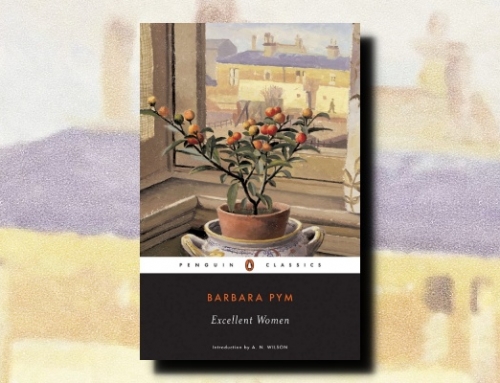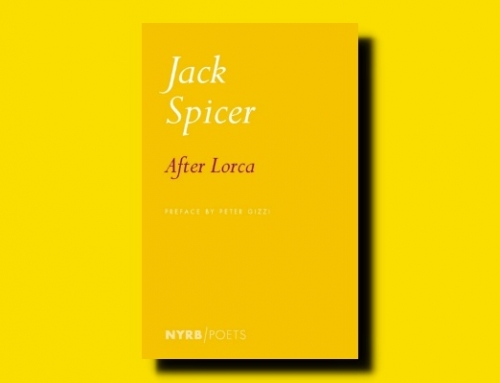Mariette in Ecstasy by Ron Hansen (1991) Harper Perennial (1991) 180 pp
I have not before read anything by Ron Hansen, though the premises of his novels intrigue me, particularly the two about nuns: Exiles, which tells the story of five nuns who drowned at sea in 1875 and who inspired Gerard Manley Hopkins’ poem “The Wreck of the Deutschland,” and Mariette in Ecstasy, perhaps Hansen’s most critically acclaimed work (though two others have been PEN/Faulkner finalists with one of those also being a National Book Award finalist). Nuns don’t often feature in contemporary literature. For that matter, neither does religion, unless it is being derided or is a part of a character’s past, something to overcome. I was very curious how Hansen, who is the Gerard Manley Hopkins Professor at Santa Clara University and who in 2007 was ordained a permanent deacon of the Catholic church, would tell these well-received stories with religious themes in a time when many readers have an almost instant revulsion to anything tinged with religion, even if, as is the case here, the book is not proselytizing but is simply exploring the viewpoints of characters who are religious, which, to me, is a part of our world worth exploring.
Mariette in Ecstasy takes place in upstate New York and begins in August 1906. When we meet Mariette (not “Mare-i-ette, like a horse [. . . .] Mar-iette, like a flaw”) she is seventeen and has slipped off her gown to stand naked in front of a mirror, anxiously offering up her body to Christ. Soon she will be wearing her mother’s wedding dress when she is inducted as a postulant into the priory of the Sisters of the Crucifixion. Her father watches “in misery.” When Mariette goes to him after the ceremony, he quickly walks out. We soon learn that fifteen years earlier Mariette’s older sister (by twenty years) also joined the priory. In fact, she is now its leader, Reverend Mother Céline.
Mother Céline fondly touches a hand onto hers and holds it there. “We must thank Our Lord for the honor of inviting both of us to serve Him here.”
“I shall. Every day.”
“Seeing you here is such a pleasure for me.”
Mariette smiles. “I have missed you so much.”
Mother Céline withdraws her hand from her sister’s. “I’ll seem subdued and distant. We’ll hardly ever talk. You’ll think I don’t love you because I won’t show it.” The prioress turns her head and then stands up. “Try to remember that I have many sisters in my family now. Don’t expect to much from me.”
One of the strengths of Mariette in Ecstasy is its unique rhythm. The book is narrated in short segments where the days are delineated by the religious calendar and the hours by the daily prayer schedule. The segments themselves are often segmented again into bit of natural detail, creating a world that is, probably, a bit foreign. We seem to have stepped back five hundred years rather than just one hundred.
Mass of Saint Ursula and Companions, Virgins, Martyrs.
Wrens are cheeping wildly and flying from branch to branch in the junipers.
Winter is still just a hint of purple and gold in the hilltop maples. High above them there is a faint sickle moon and twilight skies of indigo blue fading to beryl and green at the treeline.
Sister Dominique strolls in the garth at collation. She hears words from The Imitation of Christ. Wisps of smoke unwrap from the stovepipe. She rolls pebbles in her hand.
Workhorses noisily slurp water from a tank and simultaneously pause. Ears twitching, a pregnant mare raises her nose and sniffs the wind in two directions. Her tail flicks and the horses drink again.
Sister Monique. Sister Saint-Léon. Sister Emmanuelle. Walking in the Gethsemani garden. Wincing and smiling at talk of infants.
Star. Another there. And there.
Compline and dismissal.
I quote that passage despite my fear that out of context it will seem forced and contrived. It doesn’t come across that way in the book once one submits to the soft rhythm that mimics the passage of time. This world becomes tangible, and the manner in which these women look at it becomes something we almost experience first-hand.
That is not the only rythm in Mariette in Ecstasy, though. The other is a subversive yet robust strain of sexual energy and excitement. Like the natural observations and the passage of days, the sensual rythm draws the reader in quietly. It’s fascinating to watch how Hansen lets these two currents ebb and flow and diverge and converge throughout the novel.
Scenes with Mariette are usually depicted with sensual language and that sexually charged rhythm. Because of this, we readers, who first met her while she was “esteeming her breasts as she has seen men esteem them,” don’t know whether to trust her when she arrives at the priory. Before Mariette arrived in her mother’s wedding dress, her father sent word of rumors that she experienced “trances, hallucinations, unnatural piety, great extremes of temperament, and, as he put it, ‘inner wrenchings.'” What is Mariette looking for? What, to her, is devotion to Christ? Readers aren’t the only ones to have suspicions. From the moment she arrives there are complaints: “She is a daily temptation to intimacies and particular attachments.”
However, on Christmas Day the entire priory is in an uproar when Mariette, after a legitimately wrenching Christmas Eve, goes into a trance and allegedly receives the stigmata, the physical revelation of the five wounds of Christ on her body (holes in the wrists, the feet, and the side). As the months go by, Mariette becomes the focus of an inter-priory feud. Some believe that Mariette is in ecstasy and feel blessed to be by her side. Others believe that she is enraptured by the devil, and they want to put a stop to her sacrilege.
I see no possible reason for it. Is it so Mariette Baptiste will be praised and esteemed by the pious? Or is it so she shall be humiliated and jeered at by skeptics? Is it to honor religion or to humble science? And what are these horrible wounds, really? A trick of anatomy, a bleeding challenge to medical diagnosis, a brief and baffling injury that hasn’t yet, in six hundred years, changed our theology or our religious practices. Have you any idea how disruptive you’ve been? You are awakening hollow talk and half-formed opinions that have no place in our priory, and I have no idea why God would be doing this. To you. I do know that the things the villagers have been giving us have not helped us in our vow of poverty. And all the seeking people who have been showing up here have not helped our rule of enclosure. And there are breaches to our vow of obedience whenever you become the topic.
Whether Mariette is in ecstasy, enraptured by the devil, or performing a hoax is intriguing, but almost beside the point in this exceptional, small novel. Whatever is going on has a major impact on this idiosyncratic community, and that is just as intriguing.
Merry Christmas.









It sounds like an interesting book, Trevor. I recently read Sacred Hearts by Sarah Dunant, set a good deal earlier and more of a romance but also exploring similar issues.
This is one of my all time favorite books. I attended a reading the author did back when it first came out. It was clear from the question/answer discussion afterwards that he believes in stigmata/ecstasy fully and that he meant the book as an exploration what they must be like.
For Mr. Hansen, there was no questions, Mariette’s stigmata were real.
This was not something one expected to hear at a book reading in San Francisco in the 1980’s.
Happy Christmas to the Berretts!
Certainly an appropriate post for the holiday. Here I’ll go off-topic if I may to alert folks that if you google Al Franken/Huffington Post there are two good stories about the FCC making alarming rulings that would affect websites like this one regarding net neutrality. Corporate websites should be banned from “priority pricing” that lets them buy the fast lanes on the Internet, leaving us in the slow. We need a Paul Revere community of independent bloggers so we can alert each other to crucial upcoming FCC rulings and make our voices heard.
Merry Christmas!
Thank you for the holiday wishes, Lee and John!
cbjames, that is interesting to hear. I knew Hansen was religious, but I didn’t know from reading the book whether he thought Mariette’s stigmata real or not, which I think says something about how well he presents the enigma.